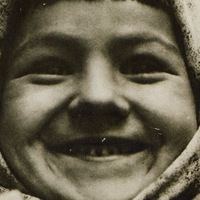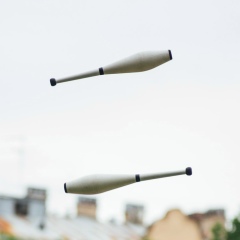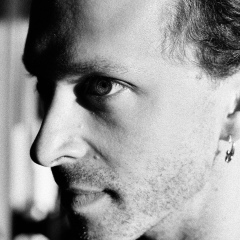HBO сообщил мне, что весь Гарри Поттер у меня на канале, и что поделать? Я его пересмотрел. Но, почему-то я его пересмотрел совсем иначе.
Гарри Поттер (равно, как и Макс Фрай) — это Bildungsromanen про послевоенное общество. Все персонажи травмированы и им неоткуда получить помощь. Но они оказываются учителями. Например, Снейп. Его нельзя пускать к детям, ему бы серьёзную психотерапию. Но в мире сказок нет психотерапевта, потому что общество — после войны. Поэтому он справляется как может, и бедные детки терпят. Но они понимают, что так — надо, потому что он тоже послевоенные, и Снейп прекрасно вписывается в их картину мира. Как и МагГонагл, и Дамблдор, и почти весь педсовет.
А мы так радостно это читаем, потому что мы сами узнаём себя в этом рассказе. Мы тоже послевоенные. Нас вырастили люди, к которым нельзя было подпускать детей. Нас самих нельзя было пускать к детям. Но так уж получилось, что психотерапевтов завезли уже после.
Роулинг и Фрай (несмотря на то, что это разные совсем вещи: Роулинг, это, всё же, литература, а Фрай до неё почти никогда не дотягивает) рассказывают одну и ту же историю: нам было страшно, с нами вели себя так, как нельзя было вести. Но мы не знали, что так было нельзя, потому что у нас не было сил ни на что другое. Потому что была война. Много кто умер, кто-то вернулся искалеченным. А живым надо было забыть про всё это и жить дальше. У них нет ни сил, ни времени на то, чтобы сделать себе небольно. Они могут только забыть и превозмочь. Этому они научат нас.
Наши дети не простят нам нашей боли, наверное, как и мы почти никогда не прощаем наших родителей и старших. Потому что наша боль была для младших не приглашением утешить, а ядом, горем, чернотой.
Моя персональная задача — это исправить то, что ещё можно исправить. Я не хочу передавать боль дальше. Я хочу наконец утешиться: утешиться за революцию и первую мировую, за вторую мировую, за всё то, что случилось с евреями, за террор и недоедание, и рассказать уже своим детям (если таковые появятся) о счастье.
Гарри Поттер (равно, как и Макс Фрай) — это Bildungsromanen про послевоенное общество. Все персонажи травмированы и им неоткуда получить помощь. Но они оказываются учителями. Например, Снейп. Его нельзя пускать к детям, ему бы серьёзную психотерапию. Но в мире сказок нет психотерапевта, потому что общество — после войны. Поэтому он справляется как может, и бедные детки терпят. Но они понимают, что так — надо, потому что он тоже послевоенные, и Снейп прекрасно вписывается в их картину мира. Как и МагГонагл, и Дамблдор, и почти весь педсовет.
А мы так радостно это читаем, потому что мы сами узнаём себя в этом рассказе. Мы тоже послевоенные. Нас вырастили люди, к которым нельзя было подпускать детей. Нас самих нельзя было пускать к детям. Но так уж получилось, что психотерапевтов завезли уже после.
Роулинг и Фрай (несмотря на то, что это разные совсем вещи: Роулинг, это, всё же, литература, а Фрай до неё почти никогда не дотягивает) рассказывают одну и ту же историю: нам было страшно, с нами вели себя так, как нельзя было вести. Но мы не знали, что так было нельзя, потому что у нас не было сил ни на что другое. Потому что была война. Много кто умер, кто-то вернулся искалеченным. А живым надо было забыть про всё это и жить дальше. У них нет ни сил, ни времени на то, чтобы сделать себе небольно. Они могут только забыть и превозмочь. Этому они научат нас.
Наши дети не простят нам нашей боли, наверное, как и мы почти никогда не прощаем наших родителей и старших. Потому что наша боль была для младших не приглашением утешить, а ядом, горем, чернотой.
Моя персональная задача — это исправить то, что ещё можно исправить. Я не хочу передавать боль дальше. Я хочу наконец утешиться: утешиться за революцию и первую мировую, за вторую мировую, за всё то, что случилось с евреями, за террор и недоедание, и рассказать уже своим детям (если таковые появятся) о счастье.
HBO told me that all of Harry Potter is on my channel, and what can I do? I reviewed it. But, for some reason, I reviewed it completely differently.
Harry Potter (as well as Max Fry) is Bildungsromanen about post-war society. All characters are injured and have nowhere to get help from. But they turn out to be teachers. For example, Snape. He should not be allowed to see children, he would have serious psychotherapy. But in the world of fairy tales there is no psychotherapist, because society is after the war. Therefore, he copes as best he can, and poor children suffer. But they understand that it’s necessary, because he is also post-war, and Snape fits perfectly into their picture of the world. Like MagGonagl, and Dumbledore, and almost the entire pedagogical council.
And we read it so joyfully, because we ourselves recognize ourselves in this story. We are also post-war. We were raised by people to whom it was impossible to admit children. We ourselves could not be allowed into the children. But it so happened that the psychotherapists were brought after.
Rowling and Fry (despite the fact that they are completely different things: Rowling, it is, nevertheless, literature, and Fry almost never reaches it) tell the same story: we were scared, we behaved like we did it was impossible to lead. But we did not know that this was impossible, because we had no strength for anything else. Because there was a war. Many who died, others returned crippled. And the living ones had to forget about all this and live on. They have neither the strength nor the time to make themselves sick. They can only forget and overcome. They will teach us this.
Our children will not forgive us our pain, probably, like we almost never forgive our parents and elders. Because our pain for the younger was not an invitation to console, but poison, grief, blackness.
My personal task is to fix what else can be fixed. I do not want to transfer the pain further. I finally want to console myself: to console myself for the revolution and the First World War, for the Second World War, for everything that happened to the Jews, for terror and malnutrition, and tell my children (if any) about happiness.
Harry Potter (as well as Max Fry) is Bildungsromanen about post-war society. All characters are injured and have nowhere to get help from. But they turn out to be teachers. For example, Snape. He should not be allowed to see children, he would have serious psychotherapy. But in the world of fairy tales there is no psychotherapist, because society is after the war. Therefore, he copes as best he can, and poor children suffer. But they understand that it’s necessary, because he is also post-war, and Snape fits perfectly into their picture of the world. Like MagGonagl, and Dumbledore, and almost the entire pedagogical council.
And we read it so joyfully, because we ourselves recognize ourselves in this story. We are also post-war. We were raised by people to whom it was impossible to admit children. We ourselves could not be allowed into the children. But it so happened that the psychotherapists were brought after.
Rowling and Fry (despite the fact that they are completely different things: Rowling, it is, nevertheless, literature, and Fry almost never reaches it) tell the same story: we were scared, we behaved like we did it was impossible to lead. But we did not know that this was impossible, because we had no strength for anything else. Because there was a war. Many who died, others returned crippled. And the living ones had to forget about all this and live on. They have neither the strength nor the time to make themselves sick. They can only forget and overcome. They will teach us this.
Our children will not forgive us our pain, probably, like we almost never forgive our parents and elders. Because our pain for the younger was not an invitation to console, but poison, grief, blackness.
My personal task is to fix what else can be fixed. I do not want to transfer the pain further. I finally want to console myself: to console myself for the revolution and the First World War, for the Second World War, for everything that happened to the Jews, for terror and malnutrition, and tell my children (if any) about happiness.
У записи 14 лайков,
0 репостов,
295 просмотров.
0 репостов,
295 просмотров.
Эту запись оставил(а) на своей стене Марк Гондельман
































